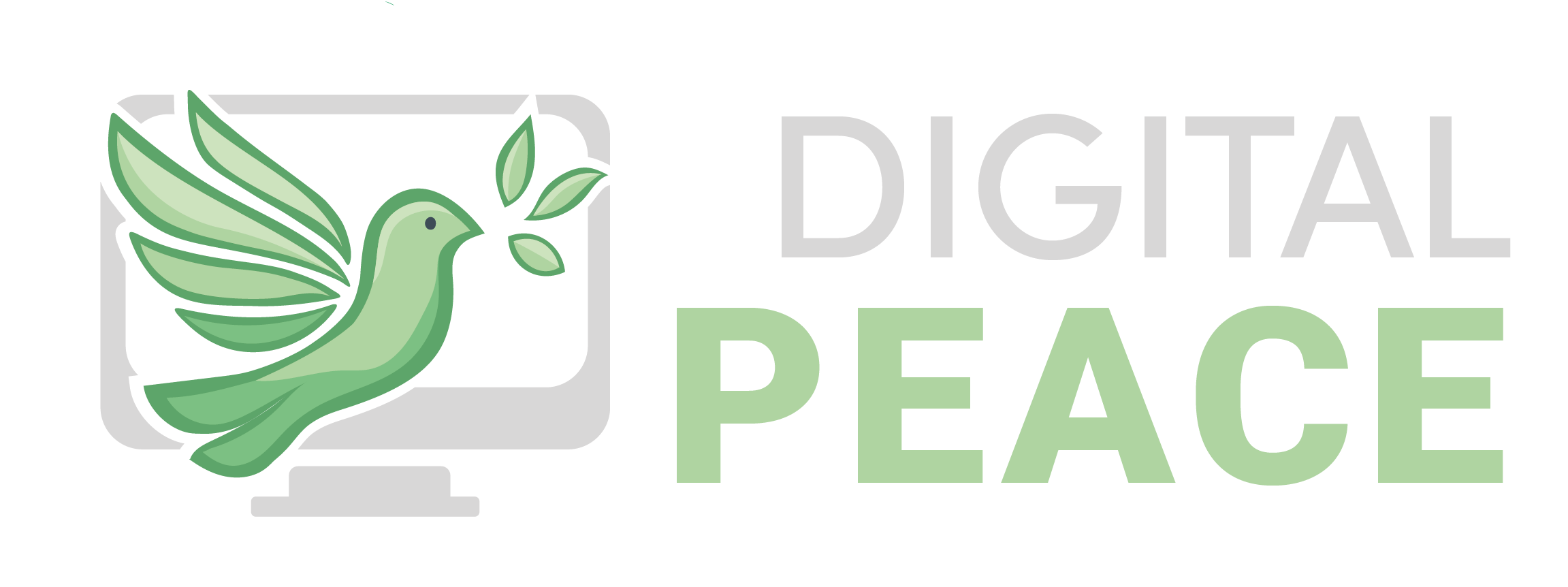Two weeks ago, I found myself standing in a familiar neighbourhood. One that I’ve been to at least a dozen times. But this time my phone had died, and without GPS, I realized, I had no idea how to navigate the streets I’d driven through multiple times.
The landmarks that should have guided me, the bakery, the corner shop, the beautiful chestnut tree right, had become invisible, or rather rendered irrelevant by years of following blue dots on a screen instead of engaging with the physical world around me. This moment of spatial disorientation revealed something far more troubling than a simple navigation failure. It was a glimpse into how systematically we’ve outsourced our thinking to machines, delegating not just the mechanics of wayfinding but many of the small cognitive processes that make us capable of independent thought.
I began to wonder: if I couldn’t navigate a neighbourhood in my own town without algorithmic assistance, what other thinking processes had I unknowingly surrendered? This question becomes urgent when we consider its implications beyond personal inconvenience. When artificial intelligence increasingly mediates our relationship with information, decision-making, and even reality itself, the systematic delegation of cognitive tasks for convenience starts to represent a fundamental threat to the cognitive foundations of democratic society.
Cognitive offloading, the process by which we delegate thinking tasks to external systems, has become so pervasive that we barely notice it happening. We ask algorithms to recommend what to watch, what to buy, whom to date, and increasingly, what to think about complex political and social issues. Each delegation seems harmless in isolation, but collectively they represent a democratic emergency hiding in plain sight: the erosion of citizens’ capacity for the independent critical thinking that democratic self-governance requires.
This article explores a critical question: What happens to democracy when we no longer think for ourselves?
The Invisible Surrender: How We Delegate Our Thinking
The transformation of human cognition through technological dependence represents one of the most profound yet unexamined shifts of our time. Cognitive offloading, e.g. the utilisation of external aids to achieve cognitive tasks, has evolved from occasional tool use to systematic thinking delegation.1 What makes this shift particularly insidious is its invisibility: we experience it as convenience and efficiency while remaining largely unaware of what we’re losing in the process.
Research from 2025 reveals the stark mechanics of this cognitive surrender. Studies show a strong negative correlation between AI tool usage and critical thinking skills, with younger users exhibiting the highest dependence and the lowest critical thinking scores.2. This isn’t simply about using tools; it’s about fundamental changes in how we approach mental challenges. Where previous generations might have wrestled with problems, sought multiple perspectives, or engaged in sustained analytical thinking, we increasingly default to algorithmic solutions that provide immediate answers while bypassing the cognitive processes that develop thinking capacity.
The scope of cognitive offloading extends far beyond obvious examples like GPS navigation or search engines. We delegate memory to smartphones, decision-making to recommendation algorithms, and increasingly, complex reasoning to AI systems that promise to think for us. Each delegation follows the same pattern: an initial experience of enhanced efficiency followed by gradual dependence, and finally, atrophy of the cognitive capacity we’ve outsourced.
Consider how this plays out in daily life. When faced with a restaurant choice, we consult review algorithms rather than developing our own taste preferences. When encountering a complex news story, we rely on algorithmic summaries rather than reading multiple sources and forming independent judgments. When making financial decisions, we follow roboadvisor recommendations rather than developing financial literacy. Each instance of cognitive offloading reduces our tolerance for uncertainty, complexity, and the mental effort that independent thinking requires. 3
The psychological appeal of cognitive offloading is undeniable. AI tools reduce mental effort while providing the illusion of enhanced capability.4 But this appeal masks a fundamental trade-off: we gain efficiency at the cost of cognitive development. Unlike physical tools that augment our capabilities while leaving our underlying capacities intact, cognitive tools can actually diminish the mental faculties they’re designed to assist.
The educational implications are particularly concerning. Research shows that students are increasingly offloading higher-order thinking to AI, asking chatbots to do hard work for them.5 This represents more than academic cheating; it’s the systematic avoidance of the cognitive challenges that develop critical thinking capacity. When students delegate analysis, synthesis, and evaluation to AI systems, they miss the mental workouts that build intellectual strength.
The result is what researchers call “cognitive laziness”, the learner’s tendency to offload cognitive responsibilities onto AI tools, bypassing deeper engagement with tasks.6 This laziness isn’t moral failing; it’s the predictable result of systems designed to minimise cognitive effort. But the cumulative effect is profound: each generation becomes more dependent on external thinking while less capable of their own independent analysis.
Algorithmic Thinking: When Machines Shape Our Minds
The delegation of thinking to algorithms represents a fundamental shift in the locus of human judgment. When we outsource decision-making to systems designed by others, we don’t just save mental effort; we surrender cognitive autonomy to entities whose interests may not align with our own or with democratic values.
The scope of this surrender is staggering. We are outsourcing our thinking to algorithms designed to moderate, monetise, manipulate and mine us. These systems don’t just provide neutral assistance; they actively shape our preferences, beliefs, and behaviours according to the commercial and political interests of their creators.7 When we ask algorithms what to think about complex issues, we’re not accessing objective analysis but consuming the worldview embedded in algorithmic design.
While AI holds great potential to advance our intelligence, it is crucial to use it efficiently to avoid simply outsourcing our thinking. This algorithmic mediation of thought is increasingly characterized by what some researchers describe as a shift toward replacing human judgment rather than enhancing it.8 Instead of providing information that helps us think better, many AI systems provide conclusions that replace our thinking entirely. When leaders and citizens blindly follow algorithmic recommendations without questioning assumptions or limitations, they outsource their judgment rather than augment it.9
The political implications of this judgment outsourcing are profound. In an age of trends, metrics, and algorithms, we’ve started neglecting our intuition and critical thinking skills.10 This neglect isn’t accidental; it’s the predictable result of systems that profit from our cognitive dependence. What we are witnessing is, in essence, the sophisticated evolution of what Shoshana Zuboff described as behavioural modification in the context of modern surveillance capitalism – not just predicting behaviour, but actively shaping it to serve economic and political agendas.
When algorithms can predict and influence our choices, we become more valuable as data sources and more controllable as political subjects. Consider how algorithmic thinking shapes political engagement. Social media algorithms determine which political content we see, search algorithms influence which information we access, and recommendation systems shape which perspectives we encounter.
Each algorithmic intervention nudges our thinking in directions determined by engagement metrics rather than democratic values. The result is a form of cognitive colonisation where our political thoughts increasingly reflect algorithmic priorities rather than our authentic concerns and values. The business model underlying this cognitive colonisation reveals its anti-democratic character. Algorithms are designed to maximise engagement, attention time, and ad revenue rather than to promote truth, understanding, or democratic discourse. When we delegate thinking to systems optimised for commercial rather than civic purposes, we shouldn’t be surprised when our cognitive processes begin to serve commercial rather than democratic ends.
This dynamic creates what we might call “algorithmic learned helplessness”, a condition where people become so dependent on external thinking that they lose confidence in their own cognitive abilities. When faced with complex decisions, instead of engaging in the mental effort that builds thinking capacity, people increasingly default to algorithmic solutions that provide immediate answers while undermining long-term cognitive development.
The global nature of this cognitive dependency reveals its strategic character. Major technology companies now shape the thinking processes of billions of people worldwide, creating unprecedented concentrations of cognitive influence. When a small number of companies control the algorithms that mediate human thought, they wield a form of power that previous generations could hardly imagine: the power to shape not just what people think, but how they think.
Cognitive Warfare: When our Minds Becomes a Battlefield
The systematic erosion of critical thinking capacity through cognitive offloading intersects with a more deliberate threat: cognitive warfare, e.g. the strategic manipulation of perception and information to achieve political and military objectives.11 While cognitive offloading weakens our thinking through convenience and dependency, cognitive warfare actively targets our cognitive processes for hostile purposes.
In cognitive warfare, the human mind becomes the battlefield. The aim is to change not only what people think, but how they think and act.12 This represents a fundamental shift from traditional forms of conflict, which targeted physical infrastructure or military assets, to conflicts that target the cognitive infrastructure of democratic societies: citizens’ capacity for independent thought, critical analysis, and reasoned deliberation.13
The relationship between cognitive offloading and cognitive warfare is symbiotic and dangerous. Cognitive offloading creates the vulnerabilities that cognitive warfare exploits. When citizens become dependent on external systems for thinking, they become more susceptible to manipulation by actors who control or influence those systems. A population that has outsourced its cognitive processes is a population that can be controlled by controlling the algorithms that do its thinking.
Research reveals the scope of this threat. Cognitive warfare seeks to influence, disrupt, or control an adversary’s perception, cognition, and decision-making processes.14 Unlike traditional propaganda, which targets specific beliefs or attitudes, cognitive warfare targets the cognitive processes themselves, the mental faculties that enable people to evaluate information, consider alternatives, and make independent judgments.
The tactics of cognitive warfare are particularly effective against cognitively dependent populations. When people rely on algorithmic systems for information processing, those systems become vectors for cognitive attack.15 Hostile actors don’t need to convince people of specific ideas; they simply need to influence the algorithms that shape how people think about issues. This represents a form of “cognitive supply chain attack” where the thinking tools themselves become compromised.
The democratic implications are profound. Cognitive warfare is a threat to democracy itself because when we can no longer trust what we see, hear, or believe, we lose our ability to function democratically. Democracy depends on citizens’ capacity to evaluate competing claims, consider different perspectives, and make reasoned choices about complex issues. When cognitive warfare degrades these capacities, it strikes at the heart of democratic governance.16
The global nature of cognitive warfare reveals its strategic character. Hostile actors now target the cognitive infrastructure of democratic societies as a primary means of achieving political objectives. This isn’t just about spreading false information; it’s about systematically degrading the capacity to know, produce, or counteract knowledge.17 When successful, cognitive warfare doesn’t just change what people believe, it changes their capacity to believe anything with confidence.
The intersection of cognitive offloading and cognitive warfare creates a particularly dangerous dynamic. As citizens become more dependent on algorithmic thinking, they become more vulnerable to cognitive attacks that exploit that dependence. A society that has outsourced its thinking to machines is a society that can be controlled by controlling the machines. This represents a new form of democratic vulnerability that previous generations never faced.
The Democratic Cost: When Citizens Can’t Think for Themselves
The erosion of critical thinking capacity through cognitive offloading doesn’t just affect individual decision-making, it strikes at the foundational requirements of democratic governance. Democracy depends on citizens’ capacity to engage in reasoned deliberation, evaluate competing claims, and make informed choices about complex issues.18 When these cognitive capacities degenerate through disuse, democracy itself becomes vulnerable to manipulation and authoritarian capture.
The evidence for this democratic degradation is mounting. Research shows that younger participants exhibit higher dependence on AI tools and lower critical thinking scores compared to older participants. Gerlich, M. (2025) highlights cognitive offloading as a central cause behind the decline.This suggests that each generation may be less equipped for democratic participation than the previous one, creating a trajectory toward cognitive dependency that undermines democratic culture.
Consider how cognitive dependency affects specific democratic processes. Voting requires the ability to evaluate competing claims, consider multiple perspectives, and make reasoned choices based on incomplete information. When citizens outsource these cognitive processes to algorithmic systems, they’re not really participating in democratic decision-making, they’re allowing algorithms to vote through them. Policy deliberation becomes impossible when citizens lack the cognitive capacity to engage with complex issues.
Civic engagement suffers when citizens become cognitively dependent. Democracy requires active participation, citizens who can identify problems, propose solutions, and work collaboratively to address shared challenges. When people become accustomed to having machines think for them, they lose the cognitive confidence necessary for meaningful civic participation.
One could reasonably argue that widespread critical thinking could resolve many of the political challenges and vulnerabilities we face today. Most of the democratic “pathologies” we’re seeing today, from polarisation to demagoguery to conspiracy thinking, exploit cognitive vulnerabilities that critical thinking skills can address.
The global implications are equally concerning. Democratic societies worldwide are experiencing similar patterns of cognitive dependency and political dysfunction. This suggests that cognitive offloading represents a systemic threat to democratic governance, not just a local problem affecting individual countries. When democratic societies lose their cognitive resilience, they become vulnerable to authoritarian alternatives that promise to eliminate the cognitive complexity of democratic life.
Perhaps most troubling, cognitive dependency creates a vicious cycle where citizens become less capable of recognising and resisting cognitive manipulation. When people lack the thinking skills to evaluate information independently, they become more reliant on external authorities, whether algorithmic or human, to tell them what to think. This dependency makes them more vulnerable to manipulation, which further erodes their cognitive confidence, creating a downward spiral toward cognitive helplessness.
The Cognitive Firewall: Building Mental Self-Defense
If cognitive offloading represents a threat to democratic thinking, then cognitive resilience represents a form of democratic resistance. But this isn’t about rejecting technology or returning to pre-digital ways of thinking. It’s about developing – what Hansen calls – a “cognitive firewall”, the mental capacity “to resist pressure from various ideas, particularly disinformation, by maintaining critical thinking and robust interpretative frameworks”. 19
To enhance the definition outlined by Hansen, cognitive resilience means maintaining the ability to think independently even while using thinking tools. It means being able to navigate without GPS when necessary, to form opinions without algorithmic assistance, and to make decisions based on personal values rather than recommendation systems. Most importantly, it means preserving the cognitive capacities that democratic participation requires even in an environment designed to erode them.
To operationalise this definition, cognitive resilience can be cultivated through a set of deliberate practices, habits that strengthen independent thinking and protect our cognitive autonomy in a tech-saturated world. These include:
- The foundation of cognitive resilience is cognitive awareness: the capacity to recognise when we’re delegating thinking to external systems and to make conscious choices about when such delegation serves our interests versus when it undermines our cognitive development.
- Practical cognitive resilience means deliberately opting for mental effort, like reading multiple sources or forming your own opinion before seeking algorithmic validation.
- Just as physical fitness requires exercising different muscle groups, cognitive fitness requires exercising different thinking skills. Cognitive cross-training means deliberately engaging in activities that challenge different cognitive capacities: analytical thinking, creative problem-solving, perspective-taking, and sustained attention.
- Information sovereignty, e.g. the capacity to control our own information diet rather than accepting algorithmic curation, represents a particularly important aspect of cognitive resilience. This means actively choosing what information to consume, seeking out diverse perspectives, and maintaining the ability to evaluate sources independently.
- Deliberate inefficiency may seem counterintuitive in an efficiency-obsessed culture, but it’s essential for cognitive resilience. Research in cognitive psychology shows that pauses, reflection, and struggle are essential for deep learning and long-term retention; yet efficiency-optimised systems are designed to eliminate precisely those moments.
- Collaborative thinking offers another pathway to cognitive resilience. Instead of outsourcing thinking to machines, we can engage in thinking partnerships with other humans, discussing complex issues, challenging each other’s assumptions, and working through problems together.
The development of cognitive resilience requires recognising that thinking is not just a means to an end but a democratic practice in itself.
When citizens engage in independent critical thinking, they’re not just solving individual problems, they’re participating in the collective cognitive work that democratic societies require. Every moment of independent thinking is a small act of democratic resistance against systems designed to make us cognitively dependent.
Reclaiming Our Minds
More and more domains of our private life and even our thoughts are becoming digitalized, and sometimes it can be hard to maintain your independent thinking in this environment. Like in my initial example with the GPS, I never planned to lose my orientation skills (btw. I ultimately managed to find the way by asking people, and now I navigate that area like a hero.) We don’t plan to outsource our thinking; it happens while we’re trying to keep up with the latest innovations.
It does frighten me to say this, but we cannot take for granted that we will retain the capacity to think independently; we must actively preserve and develop it. Not only for our own sakes, but also for the sake of democracy.
The time is now. It’s not only cognitive offloading we face. With cognitive warfare strategies not currently emerging but already in place, with a global arms race on AI tools, and political leaders who see regulations on AI safeguards as barriers to global competition, we can no longer rely on institutions to keep us safe. We can also no longer assume it’s in their interest to develop and support democratic citizenship. As outlined throughout this analysis, their interest is profit, and in many cases, they want the opposite of democratic citizenship.
Critical thinking skills will not only become the one essential skill to navigate the increasing digitalization in the upcoming years. The future of democracy may well depend on our collective ability to think for ourselves in an age of machines designed to think for us. The choice is ours, but only if we retain the cognitive capacity to make it consciously, rather than allowing algorithms to make it for us. In this choice lies the essence of cognitive peace: not the absence of thinking tools, but the preservation of thinking itself.
It’s time to rethink the future we’re building.
References
- Jose, B., Cherian, J., Verghis, A. M., Varghise, S. M., S, M., & Joseph, S. (2025). The cognitive paradox of AI in education: between enhancement and erosion. Frontiers in Psychology, 16. https://doi.org/10.3389/fpsyg.2025.1550621
- Gerlich, M. (2025). AI Tools in Society: Impacts on Cognitive Offloading and the Future of Critical Thinking. Societies, 15(1), 6. https://doi.org/10.3390/soc15010006
- Loga, R. (2025, February 26). AI’s cognitive implications: the decline of our thinking skills? Center for Health & Well-Being. https://www.ie.edu/center-for-health-and-well-being/blog/ais-cognitive-implications-the-decline-of-our-thinking-skills/
- Jackson, J. (2025, January 13). Increased AI use linked to eroding critical thinking skills. Phys.org. https://phys.org/news/2025-01-ai-linked-eroding-critical-skills.html
- Barshay, J. (2025, May 19). University students offload critical thinking, other hard work to AI. The Hechinger Report. https://hechingerreport.org/proof-points-offload-critical-thinking-ai/
- Nosta, J. (2025). The Shadow of Cognitive Laziness in the Brilliance of LLMs. Psychology Today. https://www.psychologytoday.com/us/blog/the-digital-self/202501/the-shadow-of-cognitive-laziness-in-the-brilliance-of-llms
- Kalev Leetaru. (2019, July 7). The Rise Of “Fake News” Coincides With Society Outsourcing Its Thinking To Algorithms. Forbes. https://www.forbes.com/sites/kalevleetaru/2019/07/07/the-rise-of-fake-news-coincides-with-society-outsourcing-its-thinking-to-algorithms/
- Loaiza, I., & Rigobon, R. (2024). The EPOCH of AI: Human-Machine Complementarities at Work. https://doi.org/10.2139/ssrn.5028371
- Hanegan, K. (2025, March 26). Are We Outsourcing Our Intelligence? Turning Data into Wisdom. https://www.turningdataintowisdom.com/are-we-outsourcing-our-intelligence/
- Zuboff, S. (2019). The age of surveillance capitalism: The fight for a human future at the new frontier of power. Public Affairs.
- Bernal, A., Carter, C., Singh, I., Cao, K., & Madreperla, O. (2022). Cognitive Warfare. An Attack on Truth and Thought. Innovation Hub. https://www.innovationhub-act.org/sites/default/files/2021-03/Cognitive%20Warfare.pdf
- Johns Hopkins University, & Imperial College London. (2021, May 20). NATO Review – Countering cognitive warfare: awareness and resilience. NATO Review. https://www.nato.int/docu/review/articles/2021/05/20/countering-cognitive-warfare-awareness-and-resilience/index.html
- Hervé Le Guyader. (2022). Cognitive Domain: A Sixth Domain of Operations. Hal.science, 3, 1–5. https://hal.science/hal-03635898
- Li, J., Dai, Y., Woldearegay, T., & Deb, S. (2025). Cognitive warfare and the logic of power: reinterpreting offensive realism in Russia’s strategic information operations. Defence Studies, 1–22. https://doi.org/10.1080/14702436.2025.2525207
- James, T. (2024, October 2). Waging Cognitive War. RDI. https://rdi.org/articles/waging-cognitive-war/
- Sudkamp, K. M., Vest, N., Mueller, E. E., & Helmus, T. C. (2023, March 9). In the Wreckage of ISIS: An Examination of Challenges Confronting Detained and Displaced Populations in Northeastern Syria. Www.rand.org. https://www.rand.org/pubs/research_reports/RRA471-1.html
- Cheatham, M. J., Geyer, A. M., Nohle, P. A., & Vazquez, J. E. (2024, July 31). Cognitive Warfare: The Fight for Gray Matter in the Digital Gray Zone. National Defense University. https://www.ndu.edu/News/Article-View/Article/3856627/cognitive-warfare-the-fight-for-gray-matter-in-the-digital-gray-zone/
- Fishkin, J. S. (2009). When the people speak : deliberative democracy and public consultation. Oxford University Press.
- Hansen, F. S. (2017). Cognitive Resilience. In Russian Hybrid Warfare (pp. 33–37). Danish Institute for International Studies; JSTOR. https://doi.org/10.2307/resrep17379.7







